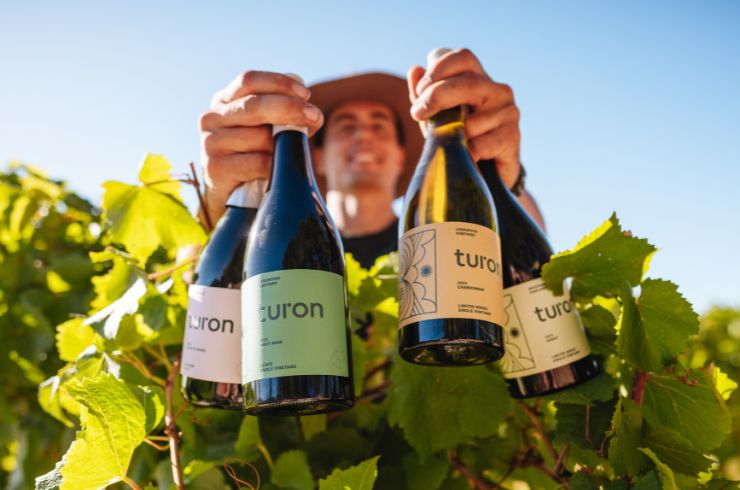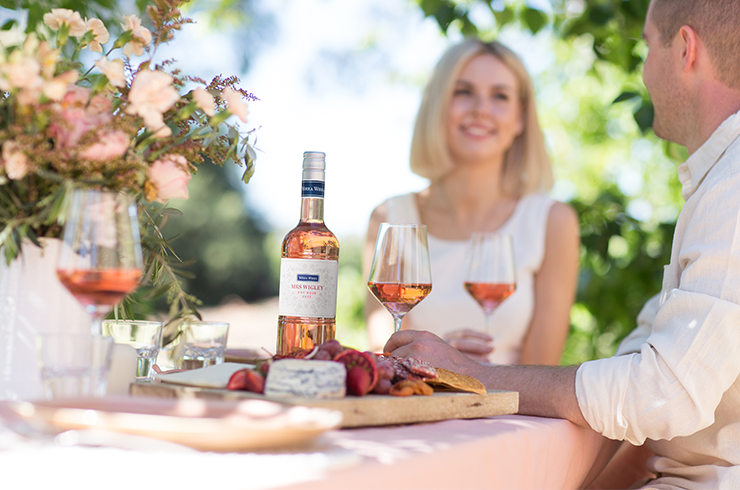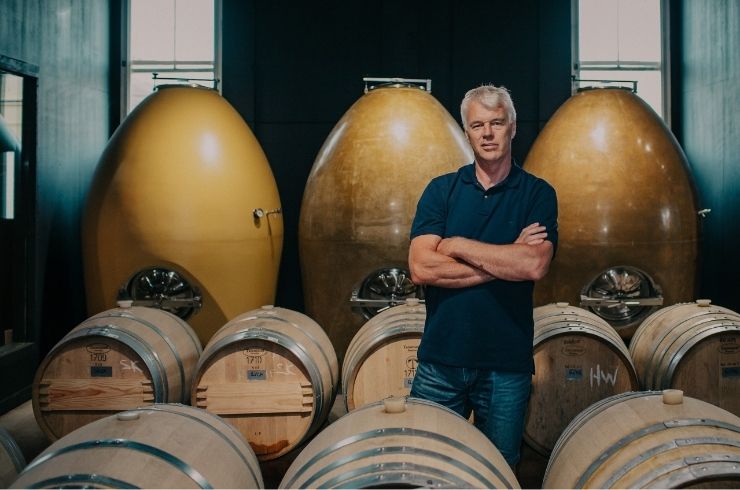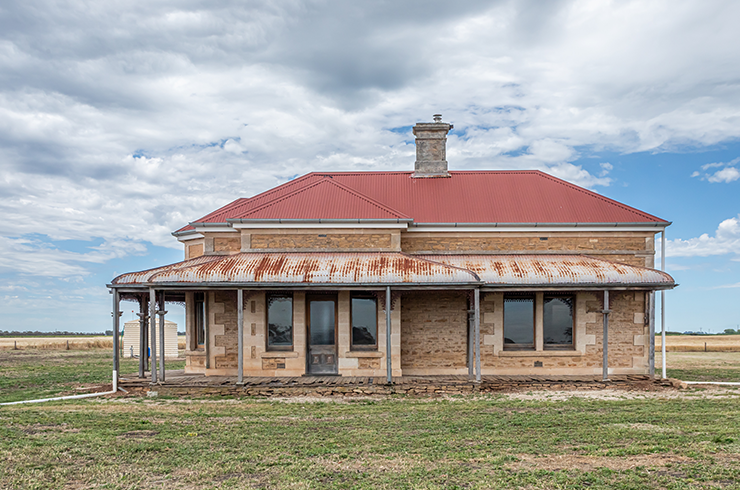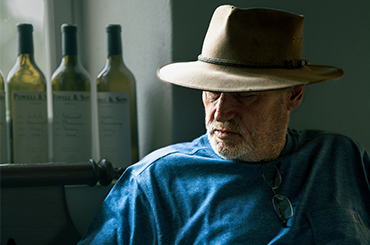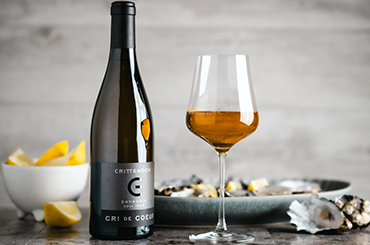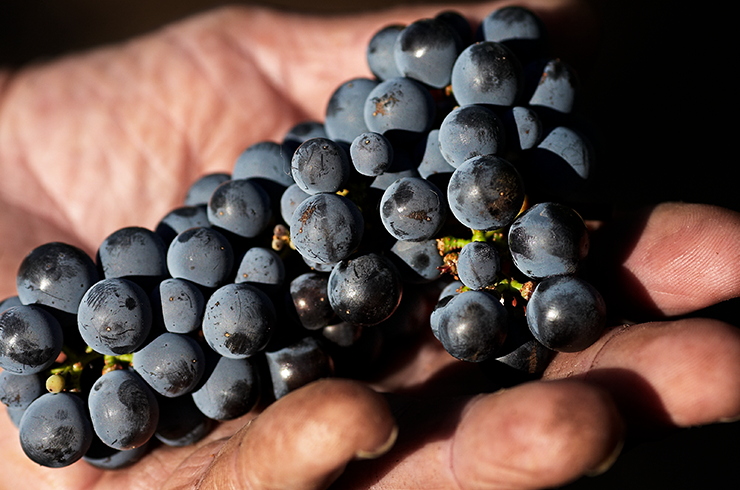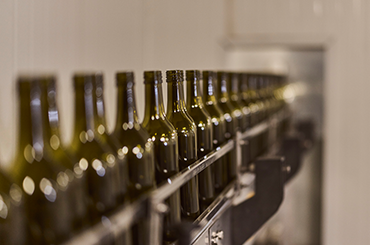There was a moment in Sierra Reed’s life when the thing she wanted to do more than anything – to create beautiful wines – seemed so unlikely that she became the object of derision. She’d been a fashion model and a TV star – she’d been a contestant on American Survivor – but no matter how much enthusiasm or indeed talent for wine she displayed, no one would take her winemaking dreams seriously.
“I sent out 300 letters to wineries, trying to get work, any winery work, and I got two replies,” she says. One of these replies was for short-term vintage work at the Hearst Ranch Winery in California. “By the time I landed there, I was so desperate to be given a chance that if I’d lost an arm in an accident I would have just gaffer-taped it back on and kept on working, I wanted it that bad.”
In this context you can imagine how Sierra felt when (during her second vintage job, at Chandon in the Yarra Valley) she was visiting another Australian winery and happened to overhear a conversation about herself.
“Someone asked, ‘Have you heard that there’s an ex-model working at Chandon?’ And do you know what everyone did? They laughed. And I realised, as they laughed, that they were talking about me, and that me, my story, was funny.”
This was 10 or so years of struggle ago, and while no one is laughing now – Sierra makes serious wines, gorgeous wines, white and red, under her own name – the memory still stings. It does so for obvious reasons but also because Sierra Reed has battled, almost from the day she was born, to be seen, and to be heard, and to be acknowledged for who she is. In short, to be taken seriously.

The thing is, this battle has given almost everything she now says, does and makes a rare depth. “Broken people,” she says flatly, “create beautiful things.”
The first time I tasted one of Sierra Reed’s wines, it was by the glass, on a Saturday night. The wine was a ‘Knife Edge’ Grampians shiraz by Reed Wines, though I’d never heard of this brand name previously. I’d ordered the wine because I like shiraz and I like the Grampians, and because it was inexpensive. In other words, my expectations of it were minimal.
And yet.
From the first casual sip, I was struck by the typicity of this wine, by its inherent balance, and most particularly by the simple, brutal honesty of it. It was rugged with spice, a good start, and its purple fruit soared, but while it had depth it also felt breezy and eager to be consumed, as if the fruit was staring straight out of the glass at you.
The next day I googled the wine, and found little to nothing, and certainly no reviews of it. I almost left it there, except that this Grampians shiraz kept gnawing away at me. Eventually I traced it back to Sierra. I looked at her social media and found that she’d recently taken on the management of a vineyard. I thought: she has a full range of wines, and a vineyard, and a winery, but no cellar door, and no press. How is she making this work?
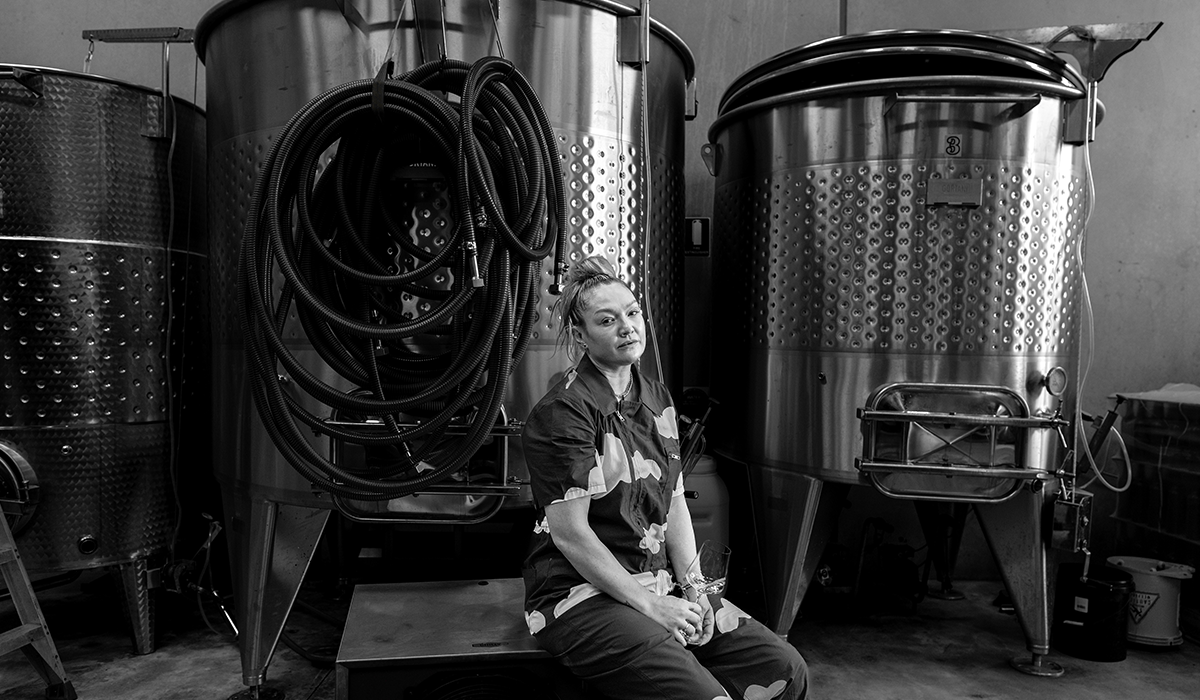
This is either going to be a complete waste of time, I then thought to myself, or it’s going to be one of the best things I’ve done in my wine life. And with that, I arranged to visit.
I’d been in the concrete industrial shell that is Sierra’s winery, on the surf coast at Torquay near Geelong, a couple of minutes when I knew that I was onto something special.
“People think I’m strong and I am,” Sierra said near the start of this visit, “but I’m tired of being tough.”
The brutal honesty of that Grampians shiraz, I quickly discovered, had come from a person who is so honest that she’s dangerous. If Sierra Reed sees a spade, she holds it up in front of your face and with full eye-contact says: tell me this isn’t a spade.
“The tools I have in my [winemaking] kit come from people who are uncompromising,” she says. Sierra is an American living in Australia – at one time, she was placed in a detention centre as part of her struggle to live here – and she’s self-taught. She’s learned winemaking by watching, and “by attaching myself to humans and to human universities”. She’s done this all over the winemaking world, at a who’s who of producers and regions.
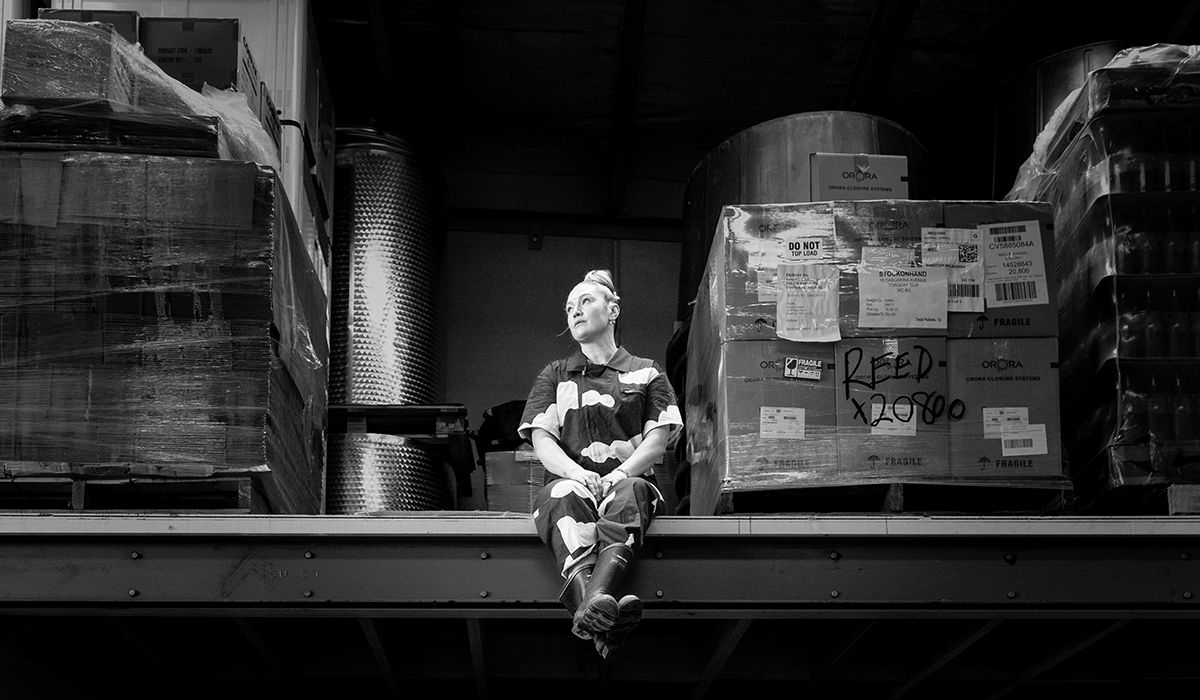
“My father said, on hearing that I wanted to be a winemaker so bad that I was suffocating with the need to do it, that I’d had a career as a model, and a career as a TV presenter, did I really need a third career? And I replied, I don’t need your approval, I just need you to pick me up from the airport.”
Sierra talks a great game, but when she splashes her 2022 White Heart Riesling in my glass, things go up a gear. Sierra’s winery, although concrete, is also an artistic place (“aesthetics are important,” she says) with cut-out clouds dangling from the ceiling, among other things. In person, too, she’s brash and bold.
But this riesling is none of that. Not only is it exceptionally good; it’s classical. “I don't want to be a moment of fashion,” she says of her wine. “I want to be a black dress.”
“Riesling tells the truth [about its soils],” she adds. “This is why I love riesling. It’s not just a taste, it’s a feeling. It becomes physical. It’s like an extra sense.”
We taste another of her rieslings (the 2022 Coeur) and it’s completely different but, also, completely stunning. “I play with riesling like people play with chardonnay. I make sure there’s a spine, and then I play around that. I make white wine like a red winemaker and red wine like a white winemaker.
“I learned what I love about soils through wine. Like grenache on sand, or gamay on pink granite, or riesling on limestone. I can taste limestone. I love that bracingness and I love that textural shape and feel, and that interplay.”
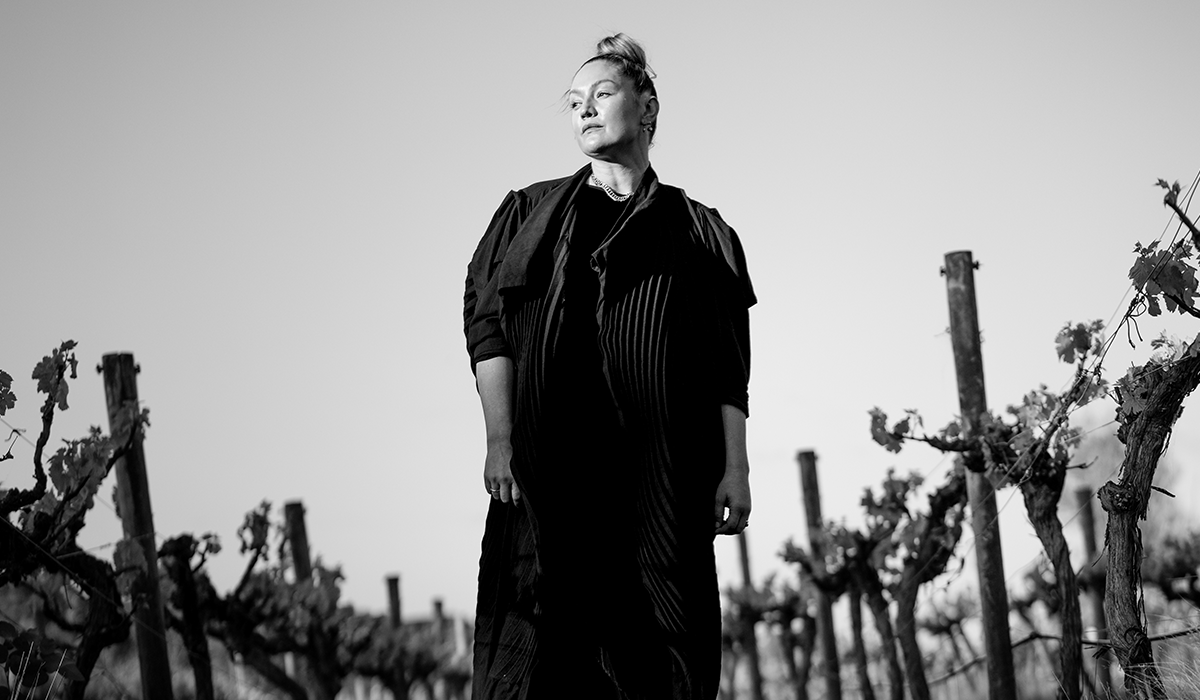
We move to a couple of iterations of Mornington Peninsula pinot gris. Both are something other; one of them tastes like apples and strawberries in a forest. And then we taste Sierra’s 2022 Reed Powers Grenache Rosé.
It’s made from Barossa Valley grapes. It’s the most ballistically good rosé I’ve tasted in some time. It’s so good that it makes me walk away from the tasting table with my head spinning. It’s throwing so much at me, all at once.
When Sierra Reed – whose dyslexia went undiagnosed through all her school years – was a little girl in Los Angeles and San Diego, she watched her mother be domestically abused by a partner.
She was so afraid for her mother, and so determined to help protect her, that she would call her mother seven times a day during the weeks she was staying with her biological father. When, at 16 years of age, she was talent-spotted and thrown to the international modelling world, she was body shamed and body stressed for years; she was photographed endlessly, but was never properly seen.
In that rosé moment, as I stand there reeling, Sierra says, “You know what wine is out there in the world? It’s self-expression, tradition, love, family, all the beautiful things. That’s what wine is.”
Sierra now has a vineyard to care for. In her words, she’s helping this vineyard – which was in bad shape when she took on the lease – to breathe. (“And as an ex-model, I’m not a natural green thumb. I used to get my jeans dry-cleaned.”) Mostly though she scratches and claws grapes from regions far and wide, the best she can find, by street smarts, and by refusing to roll over.
I was meant to visit Sierra for an hour or two. I stayed for seven hours. Near the end, she asks that I not review the wines themselves. I ask why. She pauses for the first time in hours. Finally, she says, “My happiness is not for sale."
Image credit: Campbell Mattinson.
Latest Articles
-
Meet the winemaker
Why Turon White is one of the Adelaide Hills' most exciting young winemakers
23 hours ago -
Wine Lists
Refreshing rosé: 12 wines to try $40 and under
22 Jan 2026 -
News
Why "vessel is everything" for New Zealand's chardonnay master
22 Jan 2026 -
News
Historic Coonawarra homestead, Balragon, listed for sale
22 Jan 2026
